-
•
•
94 responses
Ralph Hancock has a provocative article in the March edition of First Things in which he raises concerns about the specialization/secularization he sees occurring at Brigham Young University: “For some decades, BYU had managed a compromise between the academic mainstream and its own aspiration to a distinctive mission. [While encouraging excellence in the scholarly communities in which we participate, leaders have also] urged the faculty to resist hyper-specialization, by which we seek merely to ‘imitate others or win their approval,’ and instead to assume the responsibility of ‘those educated and spiritual and wise [to] sort, sift, prioritize, integrate, and give some sense of wholeness… to great eternal truths.’ But the machinery… Read More
-
•
•
96 responses

Imagine that every single talk you ever heard about missionary work was given by someone who had not served a mission or every single talk about fasting was from someone who (let’s say for health reasons) had never fasted. It is reasonable to suspect that our rhetoric about missionary work or fasting would, in these circumstances, sound very, very different. Currently, we define modesty as being (almost) solely applicable to females, and yet the discourse is (almost) entirely shaped by people who are not female. I think this has led us to several problems. Read More
-
•
•
4 responses
Abraham’s readiness to sacrifice Isaac is one of the most difficult to understand episodes in the Bible, and it is also a regular subject of LDS lessons, such as Lesson 9 of the Old Testament Gospel Doctrine manual. Despite its troubling nature, this event is seen as a clear type of Christ’s sacrifice, and it is often portrayed as an ideal of the righteous sacrifice we should ourselves be willing to make. Both of these views of Abraham’s dilemna appear in LDS poetry, and the latter view—that we too are expected to sacrifice for sake of the gospel—is expressed in… Read More
-
•
•
64 responses
Several years ago, I read this from Elder Nelson: Read More
-
•
•
15 responses
It dawned on me today that I have achieved Introvert Nirvana in Callings Roulette: Read More
-
•
•
7 responses
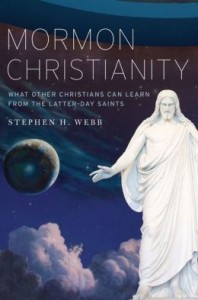
Stephen H. Webb’s Mormon Christianity: What Other Christians Can Learn From the Latter-day Saints (OUP, 2013) has a lot to offer both LDS and non-LDS readers. My acquaintance with Amazon titles on Mormonism makes me think it would have attracted a much larger non-LDS readership had it been titled How I Escaped From Mormon Christianity. Happily for mainstream LDS readers, the book is listed at Deseret Book, where an author search under “Webb” sorted by popularity puts the book just above Melodie Webb’s 250 Ways to Connect With Your Family and just below the ebook version of Isabelle Webb’s The… Read More
-
•
•
87 responses
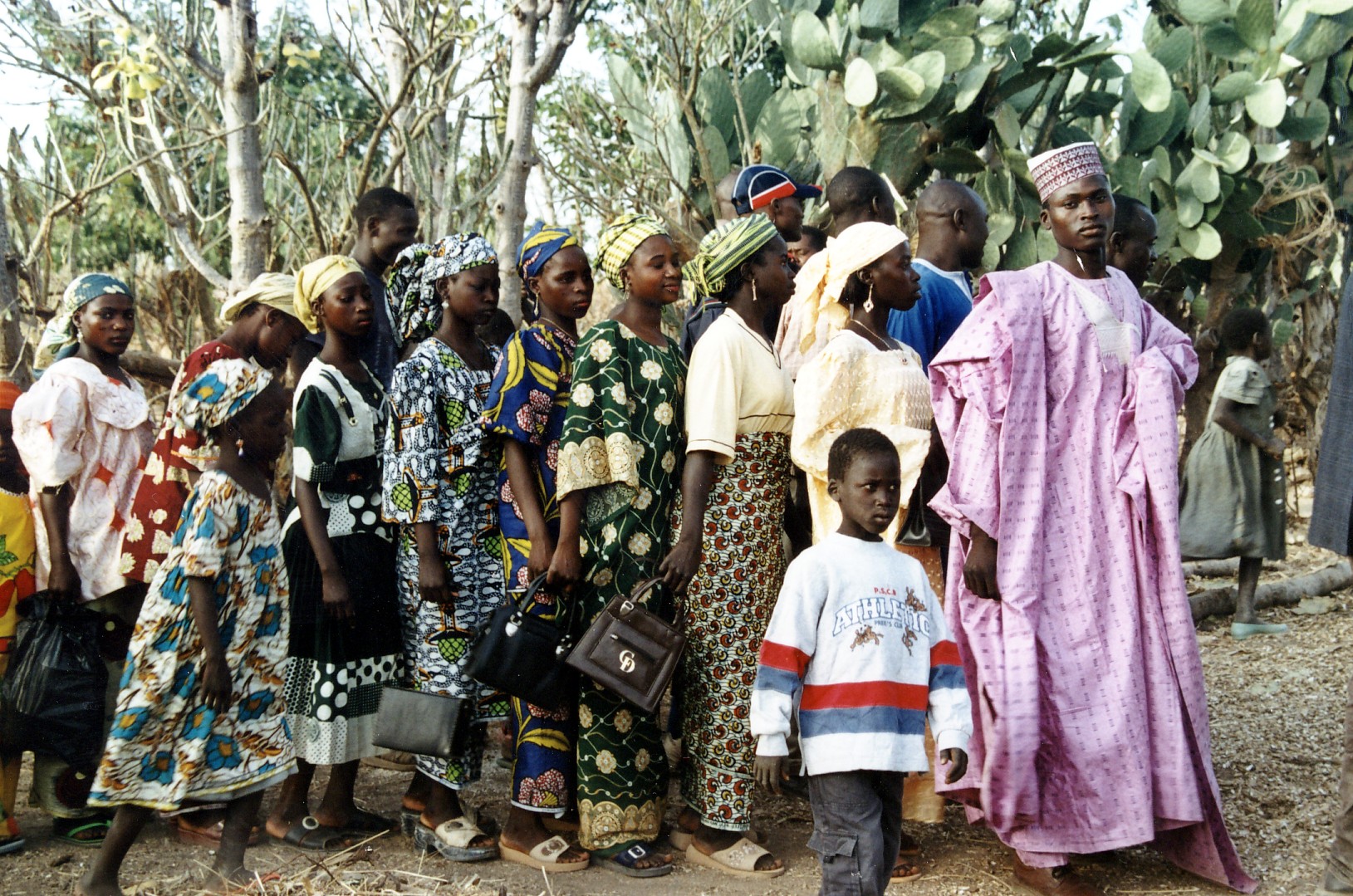
A modern Kapsiki groom, leading his bride (first one behind him) with her friends to the dancing ground No discussion in present Mormondom tops the issue of same-sex marriage. In the debates the notion of ‘traditional marriage’ is used, especially by people who want to limit marriage to a monogamous heterosexual union. Julie Smith, in her excellent guest blog, has shown that the gender division of providing and nurturing that is usually thought to be an integral part of so-called ‘traditional marriage’, does really not hold, but the notion as such is highly problematic. First, what is marriage? Like no… Read More
-
•
•
21 responses
Last week, as we were walking to school, my 6 year old spontaneously started telling me about his latest Primary lesson. He does this often, and usually reports the talking points accurately. “I learned about the bad side of Jesus,” he said. “Really? Jesus has a bad side?” I responded, wandering if they had talked about casting moneychangers out of the temple. “Yes. A very bad side. You know, when we were all in heaven, and he decided that one third of the spirits shouldn’t be allowed to have bodies, and that made them really sad, and Jesus did that,… Read More
-
•
•
One response
UPDATE: The deadlines and notification date have been pushed out an extra month to give additional time for people to submit. The new deadline is March 28, 2014. (Notifications will go out by April 15, 2014.) The 1st Annual Wheatley “Faith Seeking Understanding” summer seminar will run from July 14 through August 1, 2014. It is being sponsored by the Wheatley Institution at Brigham Young University and is under the direction of Professor Terryl Givens, Wheatley Fellow and Professor of Literature and Religion at the University of Richmond. From the announcement: What are the general contours of Christianity’s efforts to find a marriage… Read More
-
•
•
150 responses

The argument against perpetuating normative gender roles has two prongs. First, there is the argument that gender roles do not offer anything that is not available to human beings autonomously determining their own roles. Second, there is the observation that no set of gender roles applies universally. There will always be those who, because of individual nature or life circumstance, cannot conform to the prevailing gender roles. In practice, those who conform least are most marginalized. Taken together, gender roles appear to offer little substantial benefit but carry genuine cost. So what’s the case in favor of gender roles? The… Read More
-
•
•
53 responses

The last post I whipped off quickly and in frustration was surprisingly well-received. This post was similarly written, and may require editing. Update: I have good reason to believe that the Ensign article in question did not and definitely does not fully reflect its author’s position. This post is not about the author, nor even the Flood itself. (For that, please go read my Flood post first.) After 16 years, however, the article’s content is still easily and prominently accessible to members, with the authority of The Ensign and his BYU position behind it, and that remains highly problematic. Let’s… Read More
-
•
•
One response
The story of Sodom and Gomorrah, which is found in the material covered in the Old Testament Gospel Doctrine manual, lesson 8, is one of the more bleak stories in the bible. Its depressing to think that a city cannot be saved from its own wickedness, and that there was not one person there who was innocent enough to merit its salvation. Regardless of what their sins were (lets not go into that), the destruction of an entire city is heartbreaking. I think the following poem captures some of the pathos and the meaning that can be found in the… Read More
-
•
•
30 responses
So there’s my sort of neighbor big Bo, who despite owning two rock-solid Scandinavian names including, yes, Bo, doesn’t exactly seem to have things rock-solidly together. Read More
-
•
•
12 responses
Guest poster Martin Pulido is a businessman by day, LDS scholar by night, who has extensively researched Mormon belief in a Heavenly Mother. He co-authored the BYU Studies article, “A Mother There: A Survey of Historical Teachings about Mother in Heaven,” with David Paulsen, and has organized the A Mother Here Art and Poetry Contest with Caroline Kline. The “A Mother Here Art and Poetry Contest” is currently looking for 2-dimensional visual arts pieces and poems that portray Heavenly Mother. The contest will accept entries up until March 4, 2014, and over $2200 in prizes will be awarded when the best… Read More
-
•
•
63 responses
An excellent entry on “Book of Mormon and DNA Studies” has just appeared in the Gospel Topics section at LDS.org. It explains why studies of New World genetics can neither prove nor disprove the historical claims represented in the Book of Mormon. In the process, it provides a delightfully clear and thorough explanation of some key principles of population genetics, and of how these would apply with regard to the Book of Mormon peoples and the genetic evidence they would (or would not) leave today. Along the way it also offers some helpful observations about what the Book of Mormon… Read More
-
•
•
6 responses

Perhaps redundantly, I’m announcing my Old Testament column at Patheos, called Benjamin the Scribe. I post a lesson each week, with thoughts, analysis, background, handouts, links, and articles. I also have some other things, such as a link to my other writings (in which I demask my two past internet personalities), and a screencast about the Rediscovery of the World of the Old Testament. Given my schedule (classwork and MCAT study), most of my posts will be there instead of here for at least a few months. You can subscribe to get an update whenever a new post goes up.… Read More
-
•
•
If doctrines can have ideological parents, then the doctrine of the gathering is clearly descended from the Abrahamic covenant, the same that is discussed in Old Testament Gospel Doctrine lesson 7. Throughout the scriptures, when the Lord talks of “gathering” his people, he is refering to Israel, the descendants of Abraham. The covenant speaks of giving his people a promised land—the place where his people will be gathered to. Indeed, the gathering is simply a part of how the Lord’s covenant with Abraham is fulfilled. I think that many of the elements of the Abrahamic covenant are found in the… Read More
-
•
•
One response
When we cover the sacrament in our lessons, the focus is usually on the doctrines behind the ordinance. In lesson 6 of the Teachings of Joseph Fielding Smith manual those doctrines are found in remembering the atonement and in the covenant made at baptism and renewed by the sacrament. However, I think there is a bit more to the role of the sacrament and sacrament meetings than these doctrines—social meanings that might be found in the following two poems. Read More
-
•
•
One response
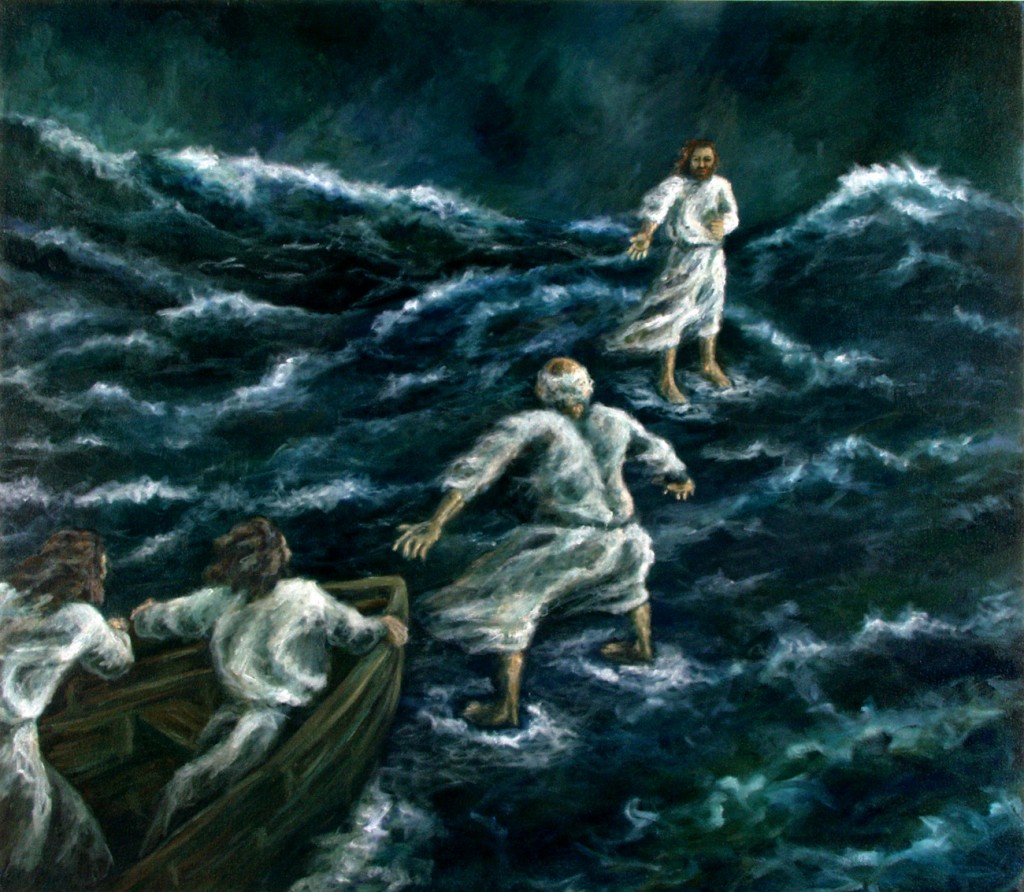
When we talk about faith in Mormonism, we often emphasize the idea that the important part of faith is not just belief in something true, but faith in Jesus Christ. And while we use lots of examples of faith, sometimes those examples leave out the role of Christ in our lives and in our faith. The Teachings of Joseph Fielding Smith manual lesson #5 explores both faith and repentance, including the role of Jesus Christ in each. So the following poem seemed to fit very well. Read More
-
•
•
14 responses
Why is the brother of Jared called the brother of Jared? He is far more important in the narrative of the Book of Ether than Jared, so why isn’t Jared called the brother of Moriancumer instead? Here’s my swipe at this much-pondered issue. One might think that Jared is more of a political leader, even though his brother is clearly the more spiritual one, and it is Jared’s political importance that makes him the one with the name recognition. At times, it looks like Jared is telling his brother what to do. Jared asks him to pray for them and… Read More
-
•
•
One response
Lesson 6 of the Old Testament Gospel Doctrine manual seems like a difficult lesson to me. It covers both the story of Noah and the flood as well as the story of the tower of Babel. The lesson combines these disparate stories under the very general topic of worthiness and avoiding the evils of the world, which may not give most teachers much to work with. While I can’t really tell teachers where to go with this, I did find a poem that also addresses these stories (and a few more) in a very general way. Read More
-
•
•
57 responses
This is a guest post from Julie Hartley-Moore, who has a Ph.D. in anthropology from Columbia University. She taught at BYU for 9 years, was a Dean at Elgin Community College in Illinois, and is now director of the Utah State University Campus in Tooele. She is a wife and mother of two. Read More
-
•
•
29 responses
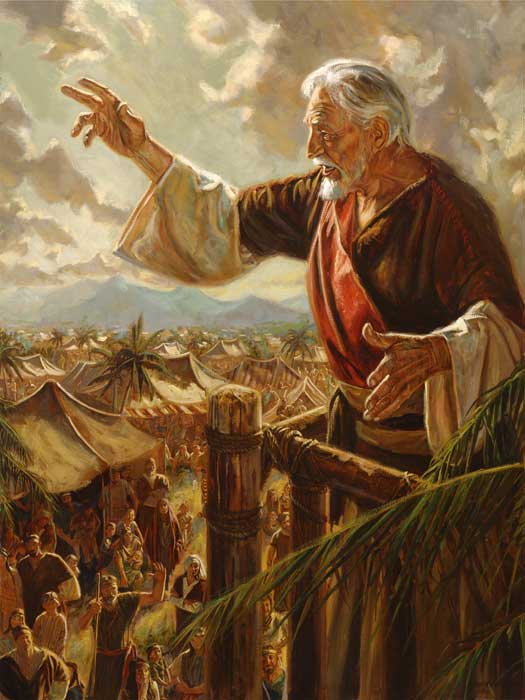
I am a beggar. I view King Benjamin’s discussion of the beggar as the ultimate Mormon discourse on desert and wealth. Hugh Nibley spoke much on the topic as well. By his own admission, Nibley was drawing upon King Benjamin. Mosiah Chapter 4: 16 And also, ye yourselves will succor those that stand in need of your succor; ye will administer of your substance unto him that standeth in need ; and ye will not suffer that the “beggar putteth up his petition to you in vain, and turn him out to perish. 17 Perhaps thou shalt say: The… Read More
-
•
•
21 responses
As a Mormon, you belong to two churches: your local congregation, be it ward or branch (the Local Church), and the Church of Jesus Christ of Latter-day Saints (the Institutional Church). While something similar may be true for members of other denominations, it is more true for and has more effect on Latter-day Saints. You may draw strength from both your Local Church and from the Institutional Church; I do, and I think most Mormons do. But they are surprisingly distinct units, with rather different, if complementary, agendas. Read More
-
•
•
42 responses

Media around the world have been reporting the developments in Utah in relation to same-sex marriage. Nearly always the articles and broadcasts also mention the Mormon Church as the conservative force that tries to prevent same-sex marriage. What could be the effect of such reporting on the image of the Mormon Church worldwide? As far as can be known, what do church members around the world think about same-sex marriage? How will the Church deal with same-sex couples who are legally married in a growing number of countries? This (long) post tries to suggest answers to these three questions. But first, the… Read More
-
•
•
14 responses
Mark’s writing style is characterized by parataxis, which means that he writes really short, simple sentences and then joins them together with the word “and.” (It’s the kind of thing your elementary school teachers were always trying to get you to stop doing.) Read More
-
•
•
4 responses
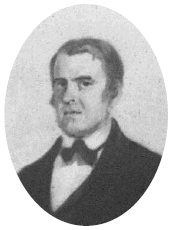
While many teachers will focus their teaching of Old Testament Gospel Doctrine lesson #5 on the story of Cain and Abel, that is only half the lesson. The other half of the lesson is the story of Enoch and his city—perhaps a more positive example for us today as we strive to live the admonition “be ye therefore perfect.” The following poem is like the story of Enoch, one of the most unusual works in its corpus. As the prefatory paragraph indicates, it came out of an LDS meeting in which Elder David W. Patten (still at least 2 years… Read More
-
•
•
33 responses

One of my heroes is Hugh Nibley. I know. I know. How cliche for a Mormon Studies guy. Though it seems almost equally cliche to dismiss Nibley. In my second semester of graduate school at the University of Utah, I took a graduate seminar in ethics and public affairs. It was a small group. I was the only active Mormon. However, most of the regular participants in the seminar were very familiar with Mormonism. Jason was a returned missionary who had served in Japan. He worked at Sam Wellers Bookstore in downtown Salt Lake City. He was gay and had… Read More
-
•
•
19 responses

Superheroes are a different breed. For a lot of them, this is literal. Most of the well-known superheroes in the Marvel Universe (Fantastic Four, X-Men, Avengers, etc.) are mutants. One of the central themes is the tension between ordinary humans and those genetically gifted with extraordinary mutant powers. Other superheroes start out as perfectly normal human beings before something happens to set them apart. Peter Parker is consecrated by the bite of a radioactive spider. The Green Lanterns are called and chosen by an ancient alien race at the center of the Universe and endowed with power rings that let… Read More
-
•
•
166 responses
It’s hard to know the future, but I will hazard a prediction: the Ordain Women project will fail. If I understand its ambitions correctly, Ordain Women would define success as an announcement that the prophet, having followed the invitation of these faithfully agitating sisters, has gone to the Lord and has received a revelation that women are to be ordained to the priesthood. I don’t know if women will ever be ordained to the priesthood, but I would be shocked if this was to happen while any institutional breath breathed in the Ordain Women movement. There are two reasons for… Read More
